Are you sitting comfortably? We don’t wanna shock you, but we’re here to talk about the F-word. No, not that one. We’re gonna talk about feminism.
That shocked gasp at the back there pretty much sums up how people are feeling right now. Feminism today is a lot of things, many of them controversial. It’s a rallying cry. It’s a dirty word. It’s something angrily chucked around on Twitter. It’s a focal point for resistance against a world that’s lurching rightwards.
At least, that’s what you’re probably hearing. And we can’t blame you; talk radio, social media, and angry people in the streets are all combining to portray feminism as something uniquely crazy and/or threatening. But the truth is a little… different. Go digging beneath the headlines, and you’ll discover that feminism is so much bigger, so much more complicated, and so different from what you likely expect.
10. It Means Liberalism
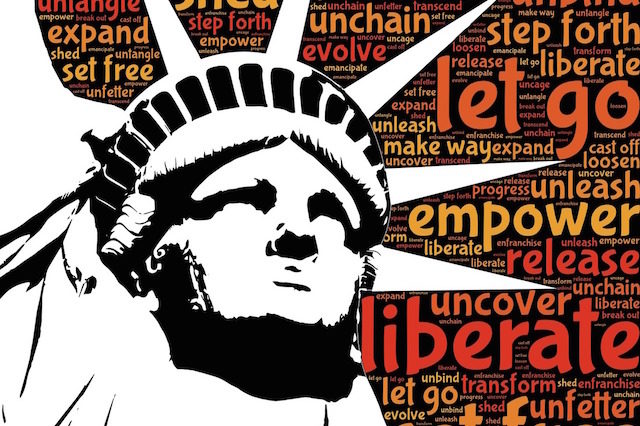
Ask most people to picture a feminist, and they’ll conjure a young, cosmopolitan, college-educated millennial girl who holds social views and economic positions somewhere to the left of Lenin. While these people definitely exist, they’re also far from the whole story. For every feminist with a poster of Bernie Sanders adorning her wall, there’s another out there with a pro-life poster stuck to hers.
Despite what social media would tell you, there are plenty of feminists out there whose social views line up more closely with Ronald Reagan than they do Elizabeth Warren. The Texas-based New Wave Feminists group, for example, are staunchly pro-life and anti-abortion. Then there’s the Empowered Women group, a vast, business network with a core belief in political libertarianism and the value of open markets. Neither of these is small groups, and they represent just a fraction of the right-leaning feminist groups out there.
At its heart, feminism just means believing in equal rights for women. You don’t have to be particularly liberal to accept that. As the multitude of different feminist groups show, you can be conservative and feminist, libertarian and feminist, or even Communist and feminist without compromising your core beliefs.
9. It Means Always Voting for the Woman

There’s a misconception that feminism means always standing by a woman, no matter how flawed she is. The 2016 US election demonstrated this fallacy. Pretty much everyone in both the Dem and Republican parties assumed feminists would automatically vote for the first major female presidential candidate in history. Seems a no-brainer, right?
Not quite. As pumped as many feminists were that a woman got a major party nomination, that didn’t mean they had to like her. Feminists aren’t unthinking automatons programmed with ‘female good, male bad’. For many, wanting Hillary to win because she was a woman made as much sense as you wanting Jeffery Dahmer for president because he was Christian.
Despite what the pundits said, this is basic common sense. Plenty of feminists were gladdened that a woman was nominated, but simply felt the GOP was better equipped to deal with more pressing issues. Equally, even some liberal feminists felt that Hillary was a bad candidate who would be a bad president, despite appreciating the milestone of her nomination. At its heart, feminism is about empowering women to make up their own minds, even if (or maybe especially if) those decisions go against perceived orthodoxy.
8. It’s Only for Women

By now, you’ve probably noticed that this article has gone out under a male byline. Yup, the dribbling writer-monkey we selected for this piece is undeniably male. Some of you might be surprised by that. Doesn’t the name ‘feminism’ kinda intentionally exclude men?
We politely disagree. Believe it or not, there are plenty of men out there who identify as feminists. And only around 0.01% of them are doing so in the hopes of getting laid.
Now, before we go any further, we should point out that this is a total minefield, even for people as brainy and all-round awesome as we are. There are a ton of articles out there by female feminists arguing that male feminists are often jerks who are hijacking their movement. In other words, that getting a male writer to cover feminism when there are plenty of female writers out there is like personally punching Emmeline Pankhurst in the face.
We can’t deny it’s potentially an odd look. But then, that’s the beauty of feminism. It doesn’t just appeal to women. Just as whites marched with Martin Luther King back in the day, there are plenty of men who genuinely give a damn about women’s rights. And, luckily for them, a good number of feminist groups are actively welcoming to them. Every man has a mom, a sister, a girlfriend, a female friend who he’d never want to see discriminated against because of who she is. To paraphrase Emma Watson’s famous ‘He for She’ speech, gender equality is an issue men should care about, too.
7. It’s Against Men
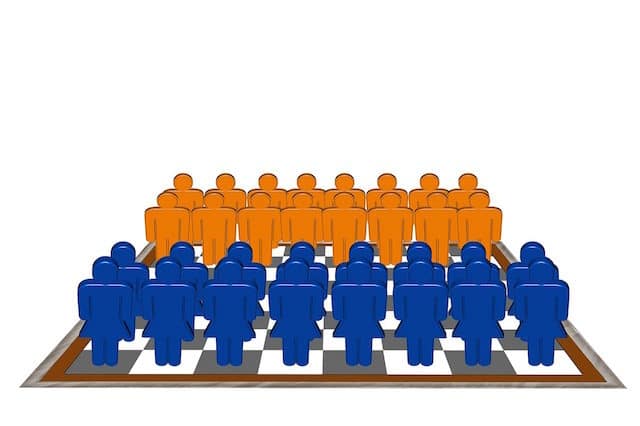
This one sorta links to the point above. People whose only brush with feminism comes via Twitter might assume feminism means screwing over men. It’s kinda in the mission statement, right? At the very least, feminists are presumably indifferent to men’s issues.
Not quite. Over the years, feminists activists have gone out of their way to target inequalities that affect men. What’s more, they’ve succeeded.
Only a few short years ago, if you were male and got raped, the FBI weren’t interested. Their definition of rape only included offenses against women. As anyone who lives on planet Earth is aware, men can and do get sexually assaulted (admittedly at a much lower rate than women). It was only after a feminist campaign that the FBI began logging statistics on male rape, too. Then there’s the whole ‘assault in the military’ thing. Several of the groups for male survivors directly grew out of feminist support networks.
Then there’s the whole, big picture issue. At its heart, feminism believes that the lives of men and women will both be improved by overturning patriarchal culture. You may well disagree with that assessment. But that doesn’t change the fact that it comes from a sincere desire to help men, too.
6. There is Only One Kind of Feminism

A big problem with how people view feminism is that they see it as one large, monolithic thing. But this is like saying the US, Singapore, Sweden and Norway are interchangeable as they’re all capitalist democracies. Feminism has as many different flavors as your local Walmart does breakfast cereals.
Over the years, feminism came in at least three distinct waves. So, you have First Wave feminism, which is from the suffragette era and is concerned with stuff like votes for women and equality before the law. Then you have the Second Wave, which focuses on stuff like domestic violence, rape in marriage, sexual exploitation and hidden abuse. Finally, you have the Third Wave, which explicitly believes there are as many feminisms as there are women, and that black women, lesbian women, Asian women and so-on all have different experiences. There might even be a Fourth Wave, depending on who’s counting.
Although these waves are ‘historic’, they’re still a handy guide for figuring out what type of feminism a given person believes in. So, someone may identify more with the 3rd wave, whereas someone else might feel the concerns of the 2nd wave are more relevant to her; with each of these waves having additional sub-divisions within them. In short, feminism is no more monolithic than Christianity, conservatism, liberalism or Doctor Who fandom.
5. Feminism Lives on Social Media

Perhaps you come from a small town where few people openly identify as feminists. Perhaps people just aren’t that into broadcasting their identities in your area. It might seem reasonable, then, to assume feminism lives on social media. After all, that’s how it’s always reported, often in conjunction with the words ‘activism’, ‘Twitterstorm’, and ‘campaign’.
It’s true that plenty of feminist-activists work on Twitter. It’s also true that many of them spearhead progressive online campaigns. But believing that social media feminism is representative of the whole is like believing snake handlers represent all Christians or Nazi-saluting Alt-Righters represent all Trump supporters.
There’s no doubt that plenty of feminists practice in-yer-face online activism. But many, many more don’t even have Twitter accounts. It’s just that those making noises are naturally the ones who wind up getting the most attention. And, if you happen to be conservative, they can be the ones who you naturally notice. Look at it this way. About 60% of all US women identify themselves as either feminist (43%) or strongly feminist (17%). That’s nearly 100 million women in the US alone. Twitter has only 67 million active US users. Even if 100% of them were feminists, that’s a heck of a lot of feminists doing their thing away from Twitter.
4. Feminists All Agree on the Same Facts
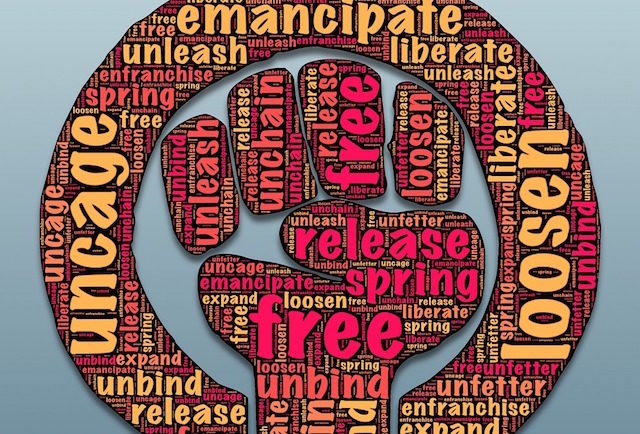
If there’s one misconception we really, really wanna bust with this article, it’s that feminism is a single thing, and feminists a single group. That’s why we keep coming back to the religion analogy. Much as branches of religions interpret their tenets differently, branches of feminism look at certain statistics in wildly different ways. What’s fact to one group may well be fiction to another.
Take campus sexual assault. Pretty much everyone agrees it’s a problem, but that doesn’t mean everyone is coming from the same starting point. You might have heard the 1-in-5 or 1-in-4 statistic and assumed all feminists believed it. Not so. Christina Hoff Summers and the Factual Feminist Group, to give one example, claim the number is grossly inflated. Nonetheless, they still campaign for an end to campus assault.
It’s like this with most other statistics you see reported. For every liberal-feminist group talking about the wage gap, there’s a conservative-feminist group saying the focus should be elsewhere. This doesn’t make one group ‘liars’ or ‘fake feminists’. It just means the thing that unites them – believing women shouldn’t be discriminated against – is bigger than any single issue.
3. Bra Burning Was an Actual Thing That Happened
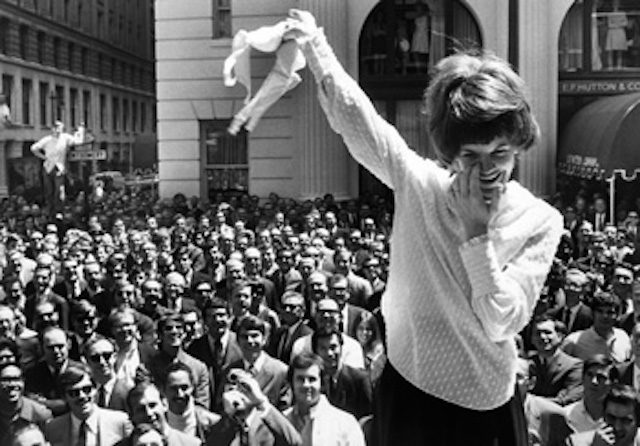
We recently debunked this one in an unrelated article, but it definitely bears repeating in this new context. The concept of bra burning as we know it, with angry college girls throwing their underwire into a flaming trashcan, simply didn’t happen. That’s right. The single most-defining mental image many of us have of 1960s feminism is as factually correct as your buddy Blaze’s story about the time he totally could’ve copped off with Scarlet Johansson.
The fact that this story exists at all is due to an unfortunate confluence of media inattention and the Vietnam War. At the time, men were burning their draft cards to escape being sent to war. The media reported ceaselessly on these card burnings, but kept on ignoring women’s lib protests. One feminist reporter, Lindsy Van Gelder, decided to subconsciously link the two causes in her readers’ minds, hoping the symbolic act of burning would make the women’s lib movement seem as legit as the anti-War one.
Unfortunately, her plan totally backfired. The male-dominated media couldn’t get enough of these crazy, bra-burning chicks and the story went the 1960s equivalent of viral. It was quoted so widely that it’s now the number one thing many of us ‘know’ about feminism.
2. Feminism Hates Traditions and Being Girly
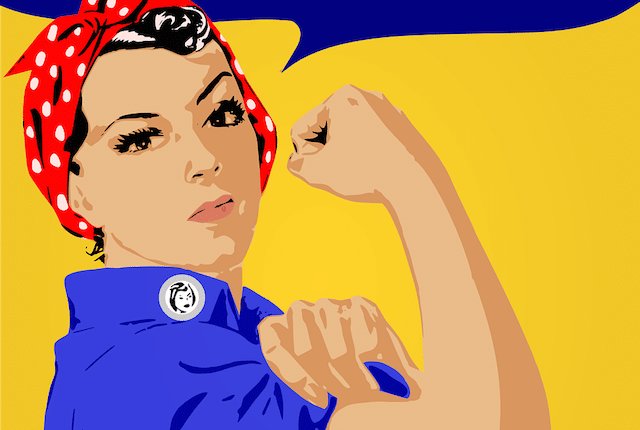
Traditions are crazy-important to human beings. They underpin our cultures, hold societies together. So when a buncha feminists decide to force the world to ditch beloved traditions in the name of progress, it’s time to fight back, right?
As with every single entry on this list, it’s waaay more complicated than that. See, feminism doesn’t mean throwing the baby out with the bathwater. There is plenty of room to be a feminist, while still choosing to embrace traditions you like.
Take the whole thing of a woman taking her husband’s second name. On some levels, this is clearly the least-feminist thing ever. But on others… well. There are plenty of feminist writers out there who have chosen to take their partner’s name, because they wanted to. Just like there are plenty of feminists who argue that being a stay-at-home mom is as personally-empowering as becoming a CEO. Or feminists who are submissive, or who love wearing makeup, or who are down with dating ‘traditional’ alpha males.
The point is that these women are free to choose whether to take their husband’s name, be a housewife, or wear traditionally girly stuff. It’s the ability to have that choice that feminism is all about.
1. We No Longer Need Feminism
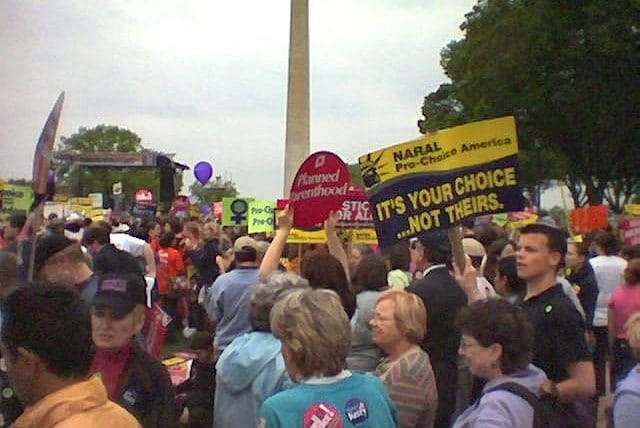
Living in the Western world, it can be tempting to think feminism is no longer needed. That women are now on an equal footing with men. Sadly, that’s so not true it’s gonna break your heart just hearing about it.
In parts of the world, it’s still totally OK to slice up baby girls’ genitals, destroying their ability to pee or feel sexual pleasure in later life. In other parts, it’s considered acceptable for pre-pubescent girls to be forcibly married to men in their 50s. Across the planet, over 5,000 women a year are slaughtered in ‘honor killings’. Disfiguring acid attacks are on the rise in places like India, but also in the UK. And that’s before we get onto the shocking education gap in places like Africa, the reduced lack of healthcare, and the sexual assault of women living in warzones.
So, yeah, feminism probably needs to be around for a good while yet. Hopefully, the day will one day come when things are so balanced that we no longer need it at all.
5 Comments
There is another misconception about Feminism, one which you have missed out in this list. This misconception is that everyone should be a Feminist. I’m not a Feminist, I’m proud that I’m not, and I never will be a Feminist. There is nothing that I am more proud of than not calling myself a Feminist. I do support equality between men and women, but I also support all forms of equality. I support equality for gay people [there are still countries in the world which do not offer gay marriage and there are still countries in the world which punish people for being gay], I support fighting against Racism, [I often hear people using Racist language] and I want to end oppression of men as well as oppression of women. I want women to be free to behave in ways that are associated with men but I also want men to be free to behave in ways that are associated with women. I want to end inequality for people with Special Needs or disabilities. I want to end oppression of people with allergies [hardly anyone even realizes that people with allergies are oppressed, but only because oppression against people with allergies is so internalised in the world]. I want to end inequalities for children [the education system has a lot of inequalities for children]. I want to end other inequalities too. I don’t see nearly as much talk about ending any inequality as I do about ending inequality for women. I don’t want to seem like I am only interested in ending inequalities for women. In fact I have even come across methods of Feminism which have discriminated against other groups of people. For example, the word “mansplaining” is Sexist against men. People can say that it isn’t, but if it was the word “blacksplaining” then people would think it was Racist, so I don’t see why the word “mansplaining” isn’t seen as Sexist. I also don’t think that Feminism is doing enough to fight against inequality for women in the Middle East. I agree with the 4th misconception you have listed, but the reality that not all Feminists agree on the same facts is part of why I am not a Feminist. I often come across people making it seem like it is clear cut how someone acts according to Feminism, but I can see that it isn’t, and I don’t want to be part of a movement in which people behave in such a different way to each other.